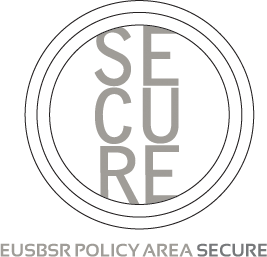Neringa Brogaitė – Karvelienė, State Fire and Rescue Service under the Ministry of the Interior of the Republic of Lithuania
Neringa’s expierence of the Baltic Leadership Programme was that it allows a participant to relate all the fields of their work to it – current daily work, the work they will do in the future; and it can apply to various institution settings. At the end of the day, Neringa suggests, this programme included various project management aspects that are present in various fields of work, as any work can be meant as a project, as well as that it can include various skills. What Neringa found extremely important, was the aspect of improving one’s soft skills by the means of practical exercises, rather than theoretical studies.
Neringa maintains that there always is a lack of development of such skills at their home institutions. The daily work that participants of the programme undertake is normally very much based on concrete procedures, without space for creativity. A model that already works is usually applied, and one has to continue applying it further. New methods are rarely called into the picture, even if these new methods would allow a better implementation of tasks. At the Baltic Leadership Programme, however, participants were encouraged to look for alternative and better ways of managing projects. Neringa is convinced that it would be advantageous to have more people learning in these kind of programmes in order to increase efficiency and success of cooperation work between institutions, especially when it relates international cooperation projects.
According to Neringa, after the programme she continues to have flashbacks of new ideas in every work that she does. For instance, she very well remembers an impressive apple exercise method, which she already applied several times with her colleagues. New methods and tips in strategic and activities planning were also immediately put into work in ongoing work at her institution. It was a very good timing, Neringa says, as the whole team were deeply immersed into preparation and organisation of the events under the back then incoming Lithuanian Presidency of the EU Council.
Neringa believes that we need leadership skills because we don’t have them. Take a person working in international relations, she says: they wait for somebody to give instructions from above in order to initiate new ideas for projects. However, by improving leadership you don’t necessary wait for the guidelines – you do, you propose.
After the Baltic Leadership Programme, according to Neringa, it became easier to work as knowledge of the network became much stronger. ”We know now people working in international departments of other institutions in the region by names. Emailing and contacting becomes less formal and you are sure that you will get the decision. It’s easier to work with partners in incoming projects because you know them. You think about project the same,” – Neringa shares her thoughts on the results of the programme.
The biggest advantage of the programme to her will remain the relations, team and ‘family’ that was established during its course. It was demanding in terms of participation, engagement, energy, but at the same time it awarded participants with new strengths they would bring back home.

